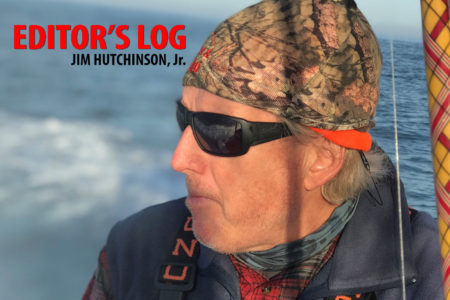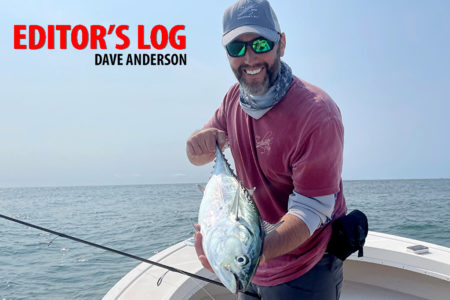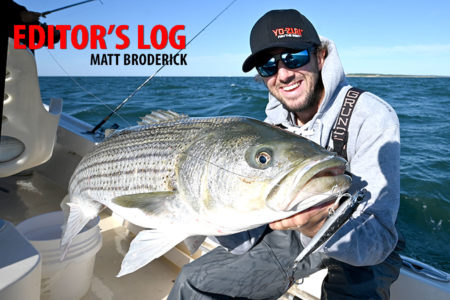Let’s get this out of the way right off the bat, the federal Magnuson-Stevens Act (Magnuson) doesn’t affect striped bass; that fishery is managed under a completely separate set of coastal laws, rules and regulations!
Congressmen Jared Huffman (D-CA) recently introduced the Sustaining America’s Fisheries for the Future Act to reauthorize our nation’s primary federal fisheries law, Magnuson. While several organizations were quick to praise the bill the folks at the Recreational Fishing Alliance (RFA) were a bit more subdued. “The devil is in the details,” is how RFA executive director Jim Donofrio put it, talking about the need to review 190 pages of new legislative gobbledygook to see what’s actually inside.
As Rep. Huffman was developing early versions of this bill over the past 2-1/2 years, RFA weighed in on some of the legalese they saw as potential pitfalls in the original drafts. Sitting down recently with RFA to review the linguistic gymnastics contained in the final legislation, it’s clear that few if any of New Jersey’s concerns were addressed in the California congressman’s bill. For example, during testimony before Rep. Huffman’s congressional subcommittee in 2019, New Jersey’s Nick Cicero testified said “The true intent of Magnuson is clearly not being met,” while adding “We’re no longer managing for sustainability, we’re managing for abundance and preservation, and it is killing our recreational fishing community.”
Case in point #1, black sea bass has been rebuilt to more than twice the target biomass, yet we never see any measureable improvement in access. Point #2, the new Marine Recreational Information Program (MRIP) data led to a 40% increase in commercial fluke quota in 2019, while the recreational community received nothing. So when Cicero voiced his opinion concerns at the congressional podium I’m sure it wasn’t something that Rep. Huffman had hoped to hear.
And the California congressman probably won’t like hearing this either – nor will the environmental charlatans who’ve spent the last 2-1/2 years pimping out striped bass preservationist theory (again, not managed by Magnuson) in an effort to gain followers in their lobbying efforts to take fishery management decisions and quota away from New Jersey – but the Huffman legislation is horrible!
Sure, there are some pros I’ll try tackling over the coming months, but the bill itself is heavily laden with too many cons, like unmanageable “climate change” lingo requiring fisheries managers to forecast the future of fish stocks decades out. It’s tough enough to argue for more days of fluke and sea bass fishing as it stands now, yet Rep. Huffman wishes to add yet another layer of precaution based on “prevailing and anticipated future environmental conditions, including climate change.”
The real problem with access to fluke and sea bass is with the application of “annual catch limits” (ACL) in the recreational sector. We all understand the concept of, and need for quotas, but with ACLs as written in Magnuson today we’re effectively assigned a season, size and bag limit standard to keep below a rigid and inflexible hard number. And if random MRIP surveys show more people fished and we eclipse that ACL number – even if it was NOAA Fisheries that assigned us the season, size and bag to begin with – we as a community would bear the responsibility of overfishing.
In one breath many friends in the tackle industry are ecstatic about new anglers fishing after COVID. However under the rigid ACL paradigm, the more saltwater anglers we see, the worse our regulations will become, which means there’s no regulatory room for tackle industry growth. It’s this ACL dilemma with its added layers of management precaution which have led to ever-tightening seasons while collapsing New Jersey’s for-hire community.
Imagine what another level of precaution based on “prevailing and anticipated future environmental conditions” will do to our recreational fishing opportunities; unlike the bill’s title, it certainly won’t be “sustaining” them!


